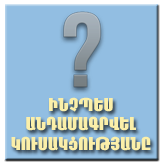
The interlocutor of Aravot.am is Raffi Hovhannisian, the former Foreign Minister of Armenia and the leader of the “Heritage” party.
– Anti-Russian sentiments in Armenia, EU mission, RA-West relations. These topics were touched upon at the Lavrov-Mirzoyan press conference, and the RA Foreign Minister’s answers were abrupt, evasive, and sometimes he was silent. Is it possible to form an impression about Armenian-Russian relations from the press conference? In what condition are they, and under the created situation, what impact will they have on the Republic of Armenia?
– The state of those relations needs to be better; they are in the basement; it can be seen in the reflection, as always, it is vertical, not horizontal, and partnership. As always, the primary responsibility belongs to the current government, which has brought its irresponsible, disrespectful, irrelevant policy here. Russia also has its responsibility: Its procedure and diplomacy in the direction of Turkey and Azerbaijan has allowed Armenia to conduct a very superficial and irresponsible policy. But the main thing is that we are in this situation because of Armenia’s fragmented, superficial, and opportunistic politics. As for anti-Russian or any anti-Western policy, there are forces in pro-government and anti-government political circles that use very simple approaches and make very counterintuitive, emotional expressions, either in an anti-Russian or Western direction, either loving or rejecting them. Neither one nor the other reflects the popular objective approach nor the national interest of Armenia. Armenia-centric politics has no anti-Russian or anti-Western policy, but everything starts and ends with Armenia’s state and national interest. Anti-Russia is targeted in a question and answer; the opposite question and answer are heard during another event. These are temporary, rhetorical problems created mainly by the irresponsible policies of the current government.
– And in general, is Russia to blame for that Nikol Pashinyan and his team coming to power in Armenia and continuing to remain in force?
– You should not focus on the reasons for the change of power in modern Armenian history but on today’s state disaster, an unprecedented national crisis that needs to be overcome, which is as internal as it is external. We must change internally, both individually and nationally, and with state-authority personnel if our state historiography is to continue. Regarding your question, I think that if the history, government behavior, glory, and elections of our previous periods had been of a different quality, in another way, the widespread anger and the imperative of the popular upsurge would not have been at the level that erupted in 2018. It is still being determined from which direction the international actors were there. I have heard 4-5 different theories, but I need to find out whether Russia, the West, or the East accompanied all of this. But we wouldn’t have this day if it weren’t for the widespread anger, the vices of the previous period, and the opportunism of the incumbents who came out. But popular upsurge and the national outrage were used to realize their goals: There was misbehavior and hypocrisy on the part of many, and that international accompaniment could take place either very proactively on the one hand or passively tolerated on the other; one initiated, accompanied and supported, the other accepted, and, we can say, there was a particular international support.
Interview by Nelly GRIGORYAN
